On June 16 International Domestic Workers Day, the Solidarity Center salutes women union leaders around the world who are urging governments and employers to recognize care as a public good and a human right, and to provide care workers, including migrant workers,...

The Solidarity Center assists workers in the informal economy, such as market vendors in Zimbabwe, come together to assert their rights and raise living standards. Credit: ZCIEA
Some 2 billion people work in the informal sector as domestic workers, taxi drivers, and street vendors, many of them women workers. Informal economy work now comprises the majority of jobs in many countries and is increasing worldwide. Although informal economy workers can create up to half of a country’s gross national product, most have no access to health care, sick leave or support when they lose their jobs, and they have little power to advocate for living wages and safe and secure work.
The Solidarity Center is part of a broad-based movement in dozens of countries to help workers in the informal economy come together to assert their rights and raise living standards. For instance, three affiliates of the Central Organization of Trade Unions-Kenya (COTU-K), a Solidarity Center partner, signed agreements with informal worker associations to unionize the workers, enabling them to access to the country’s legal protections for formal-sector employees.
Find out more about informal workers gaining power by joining together in unions and worker associations in this Solidarity Center-supported publication, Informal Workers and Collective Action: A Global Perspective.
Ukraine: Domestic Workers Win As President Signs New Law
Soon after organizing to advocate for formal recognition as workers and protections at work, domestic workers in Ukraine won a significant victory when President Volodymyr Zelenskyy signed a new law on May 22 regulating domestic work and affording new protections to...
Ukraine: Domestic Workers Organize for Recognition, Dignity
In a first for Ukraine, in-home childcare workers including nannies and babysitters organized and then elected domestic worker Tetiana Lauhina to head their new labor organization, Union of Home Staff (UHS). "[My colleagues] are amazingly hard-working and...
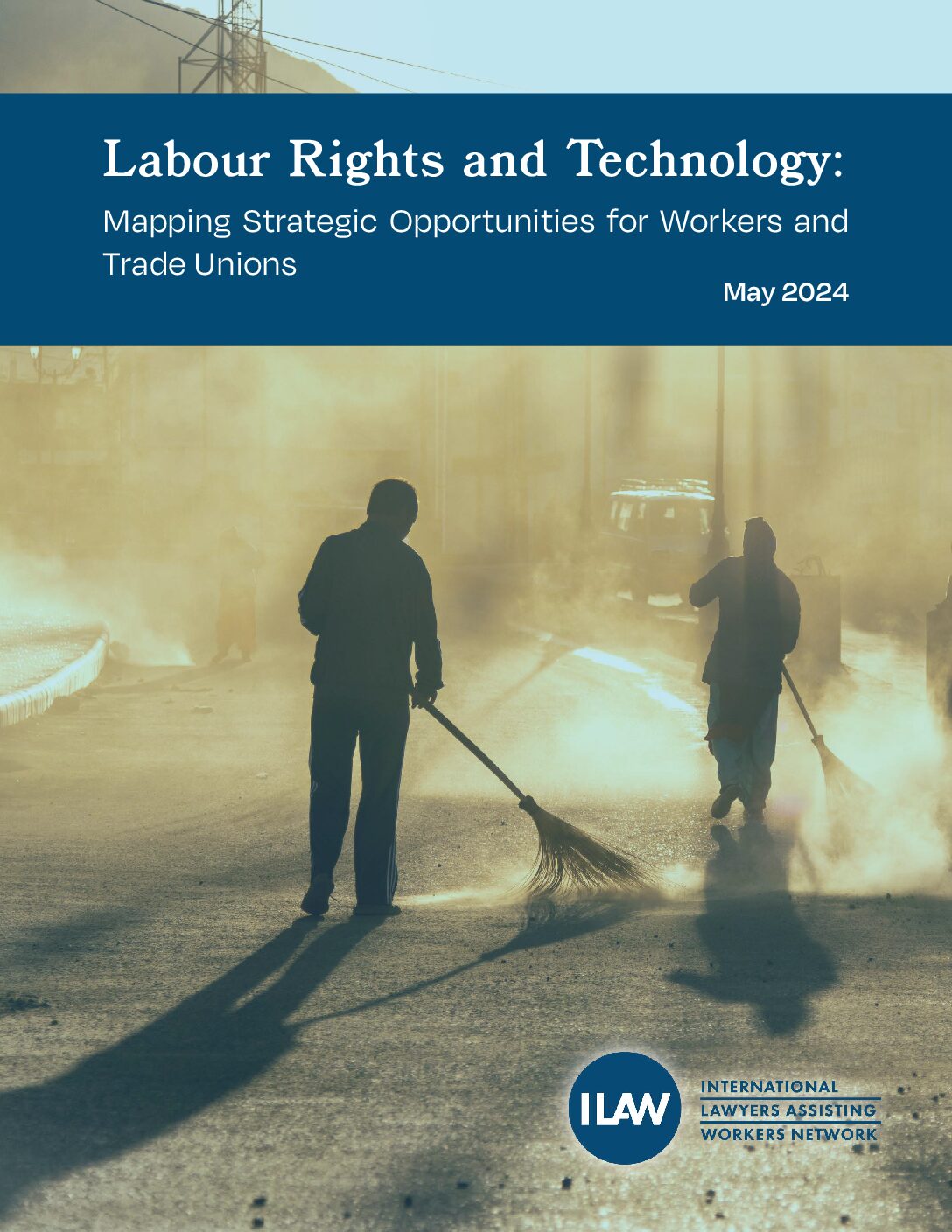
Labor Rights and Technology: Mapping Strategic Opportunities for Workers and Trade Unions
This ILAW Network issue brief, researched and drafted by Dr. Barbora Černušáková, maps some of the legal initiatives and strategies undertaken by workers and unions, and outlines opportunities for workers to challenge breaches of technology-driven labor rights through...
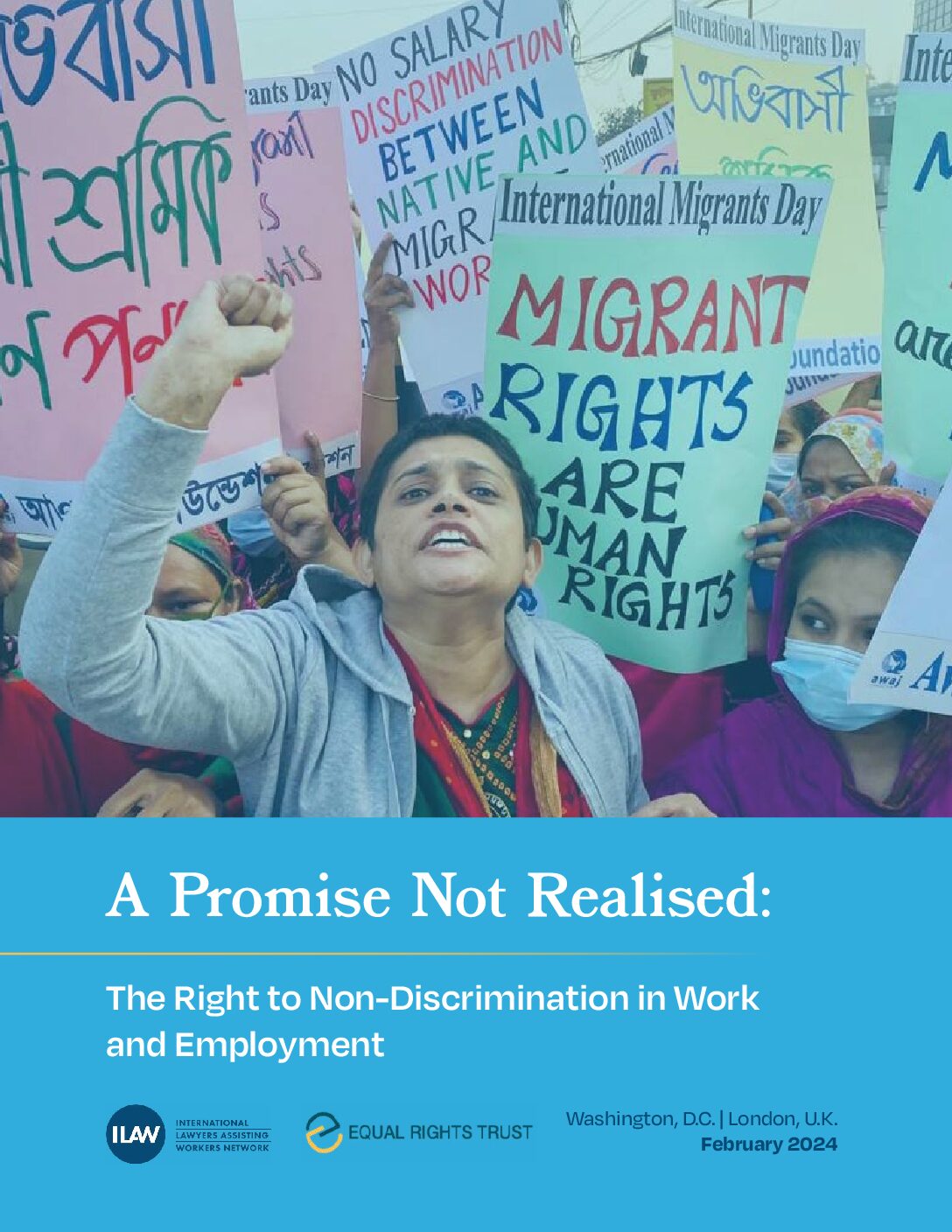
A Promise Not Realised: The Right to Non-Discrimination in Work and Employment
The ILAW Network is pleased to present our new report, A Promised Not Realised: The Right to Non-Discrimination in Work and Employment – a collaboration of the ILAW Network and Equal Rights Trust (ERT). This issue brief focuses on two main questions: (1) why does...
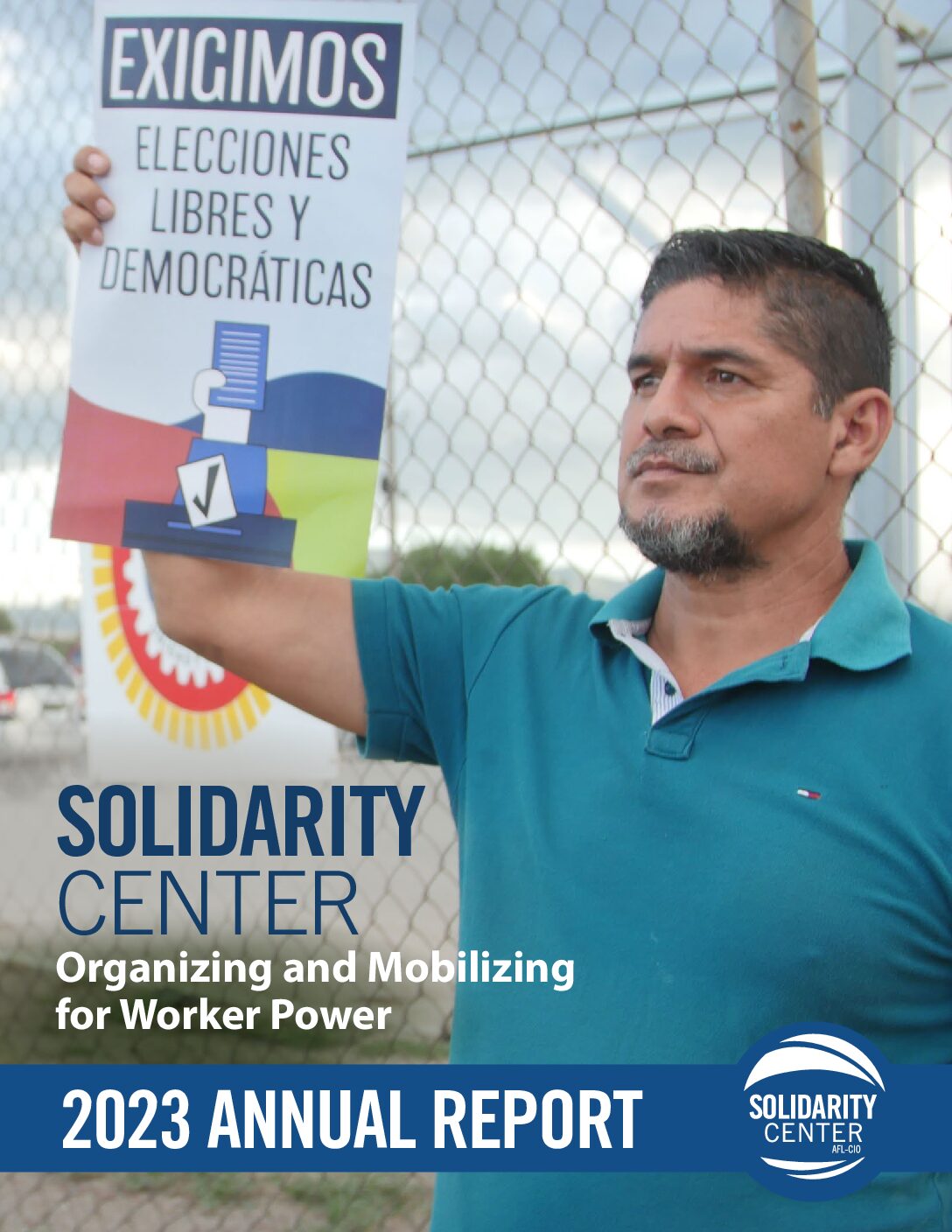
2023 Annual Report
In 2023, the Solidarity Center supported workers as they took on exploitative multinational companies and robot algorithms, demanded their governments tackle social ills and deliver on promises, and fought for justice in environments increasingly dangerous to those...

Widespread Exploitation in the EU Road Transport Industry: The Case of Central Asian Truck Drivers
The ILAW Network is pleased to present our new report, Widespread Exploitation in the EU Road Transport Industry: The Case of Central Asian Truck Drivers, written by Imke van Gardingen and Edwin Atema of Road Transport Due Diligence (RTDD). This research was supported...
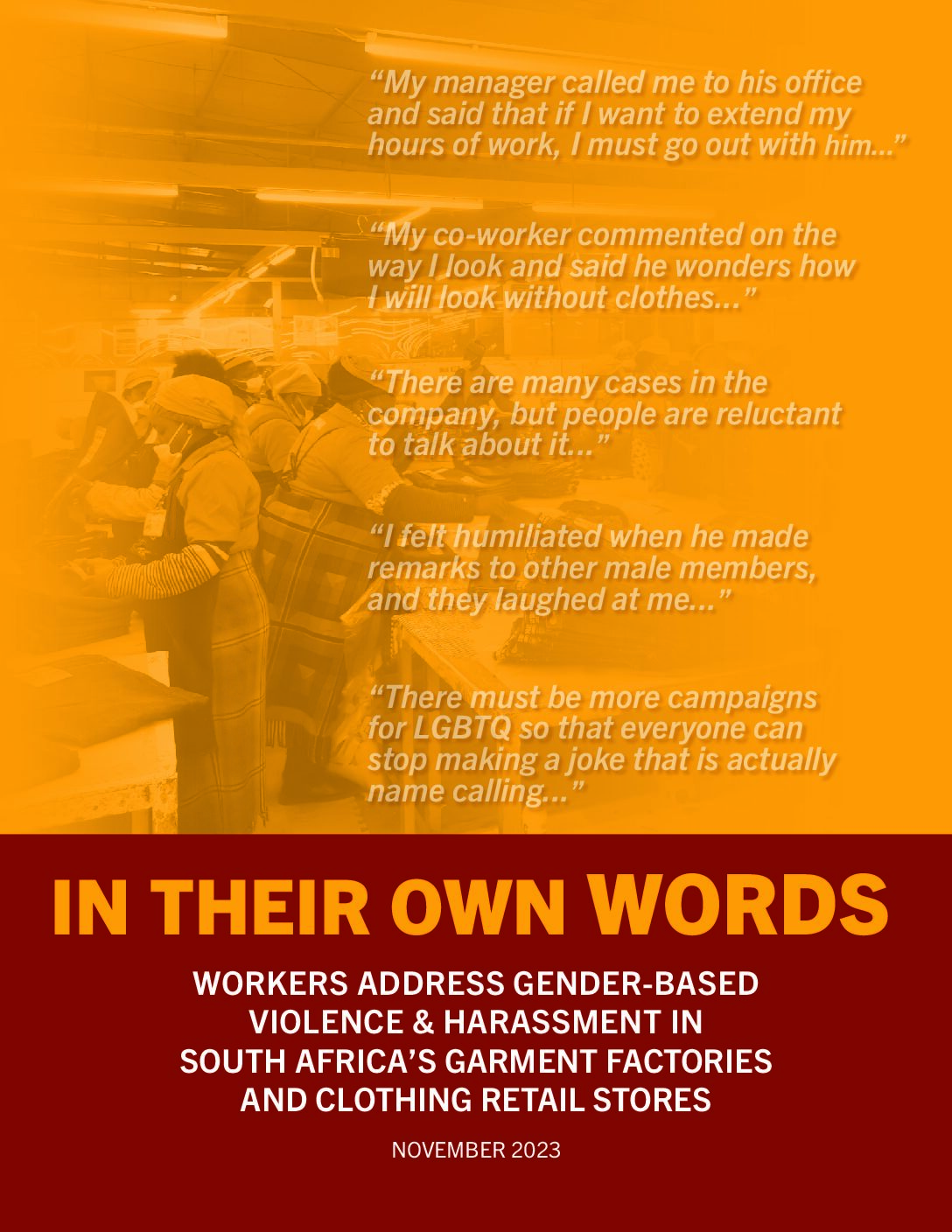
In Their Own Words: Workers Address Gender-Based Violence & Harassment in South Africa’s Garment Factories and Clothing Retail Stores
In South Africa, 98 percent of women garment and retail workers surveyed in 2022 said they had experienced one or more forms of gender-based violence or harassment, including physical abuse, unwanted sexual advances, psychological abuse, bullying and rape. To better...
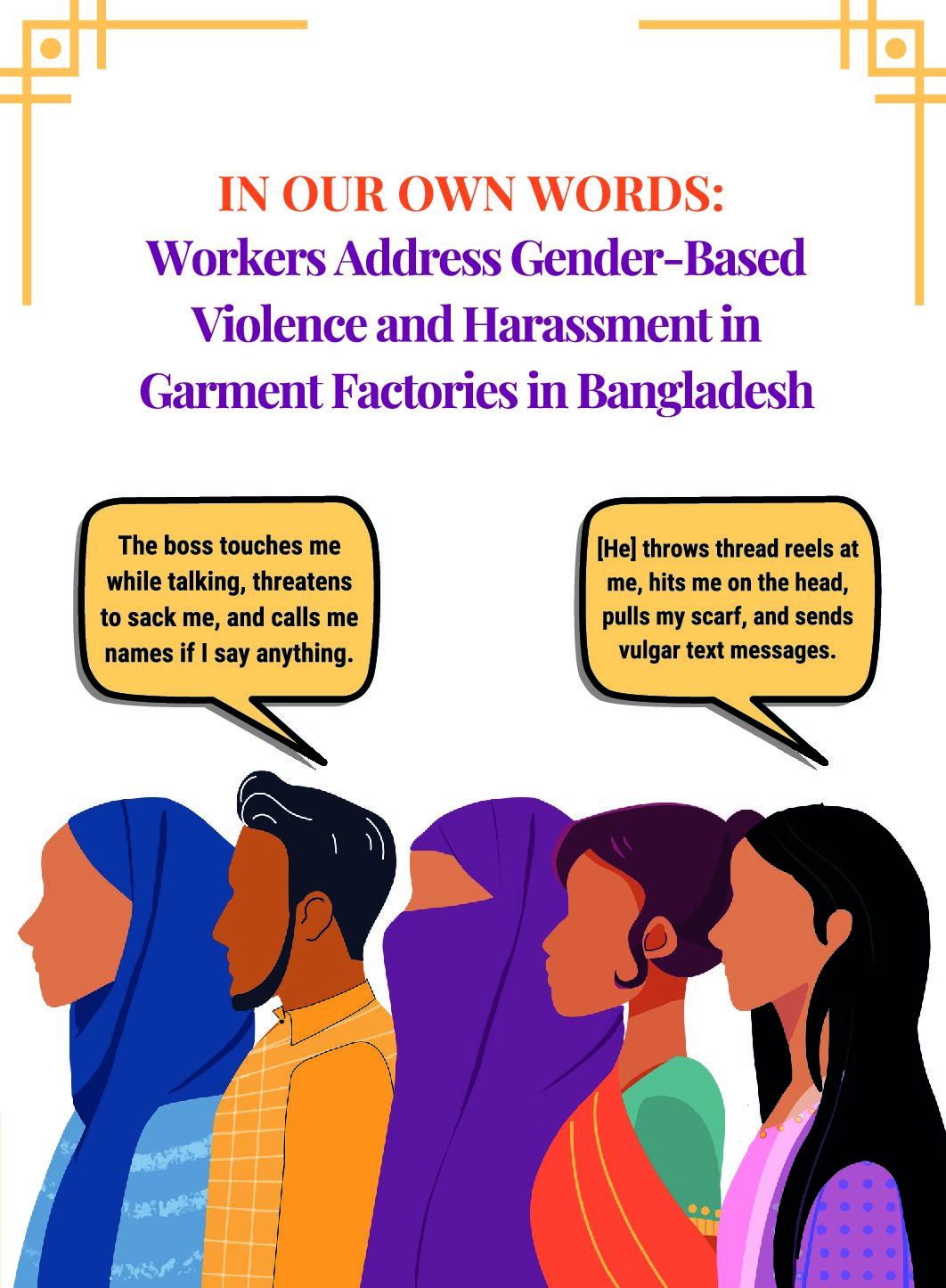
In Our Own Words: Workers Address Gender-Based Violence and Harassment in Garment Factories in Bangladesh
In Bangladesh, 80 percent of women garment workers surveyed in 2019 reported they had experienced or witnessed sexual harassment, molestation or assault, endured extreme verbal abuse or witnessed a factory manager or supervisor abuse and harass other women in the...


